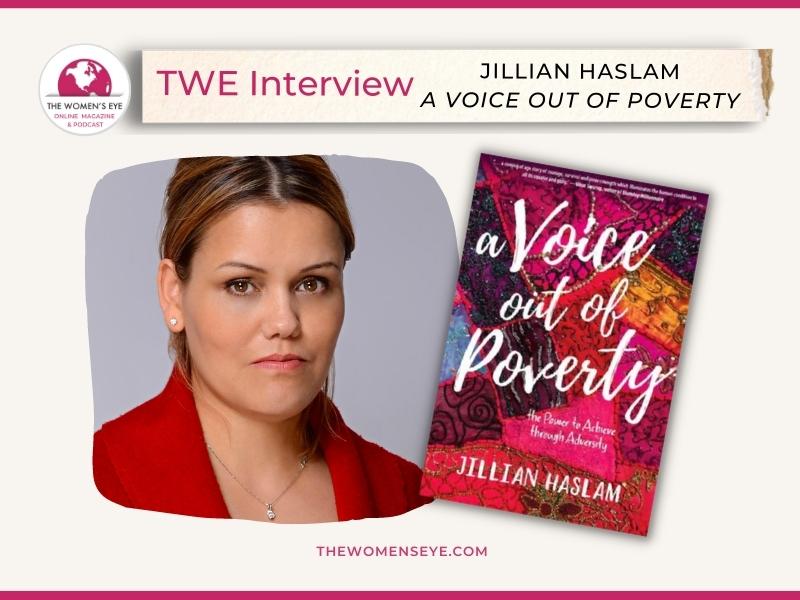
This statistic on global poverty is staggering. In 2021 an estimated 698 million people, or 9% of the global population, were living in extreme poverty – that is, living on less than $1.90 a day.
Jillian Haslam, author of A Voice Out of Poverty, is one woman set on eradicating the poverty crisis. She emerged from an unrelenting life of poverty in the slums of Calcutta. How she managed to escape that life and make a successful 23-year career in the banking world is astonishing.
“When you attach yourself to something far greater than yourself, that is when the magic starts to begin. You never stop working hard because there are expectations and people depend on you. But with that, you keep rising and you keep getting to the top.” Jillian Haslam
What is even more fascinating is that she returned to those slums with new challenges to create awareness and stop the cycle. She was awarded the Mother Teresa International Award along the way. I spoke with Jillian to find out how she is using her voice and her story to implement solutions to worldwide poverty which Jillian contends is more critical than climate change….
EYE: Growing up in the slums of Calcutta you experienced hunger, prejudice, desperate poverty, even the death of your siblings. Who or what kept you going through all of this?
JILLIAN HASLAM: I’ll have to say it was my parents. If I want to add a little twist to this, I have to say it was Dolly Parton, believe it or not.
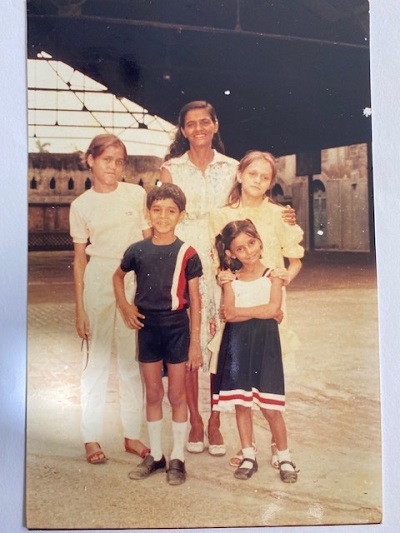
EYE: Ok. That is quite a range. Tell me about your mother’s influence.
JILLIAN: My mother was highly charitable, so she kept us going round the clock. If somebody gave us ₹1 (rupee) as pocket money, she would say, “If you put your ₹1 in his beggar’s bowl, trust me, God will give you ₹2 back.” She used to bring strangers off the street and say what five can eat, six can eat.
My mother used to keep cats, birds, anything, and anyone that lived or worked who didn’t have a home or help. My father used to call our little room, which was eight by ten feet, Noah’s Ark, because she wanted to help everyone.
EYE: And your Dad?
JILLIAN: My father was highly inspirational and I think I’ve got a little bit of that. He was full of quotes, full of songs and everything. Every morning he used to kiss us and say, “You are all are my little leaders.” One day he bought this little tape recorder. It was old, broken, tied with rope, with some cassettes, dirty and filthy cassettes. One of them was Dolly Parton’s Greatest Hits.
At one point, I questioned what was wrong with me when my first crush, my boyfriend, would walk on the other side of the street when he saw one of his family members or a friend. My dad said, “I can sit and explain poverty to you, and I can explain why he doesn’t want to be seen with you. Or you can sit down and listen to Dolly Parton’s song, Chicken Every Sunday.”
That song about being just as good as anybody, changed my life.
EYE: So Dolly Parton became part of your daily lives?
JILLIAN: My mom used to send myself and my little sister around to these little tailor shops. We would go under their machines, collecting all the rags they used as well as the cut pieces and bring it all home. She would sit and tell us the story of Joseph and his coat of many colors and stitch these beautiful little coats for us, as well as little curtains and pillowcases, all out of little rags.
My dad used to play Dolly Parton’s Coat of Many Colors on the tape recorder as all this was going on. So we grew up with her and she was highly inspirational.
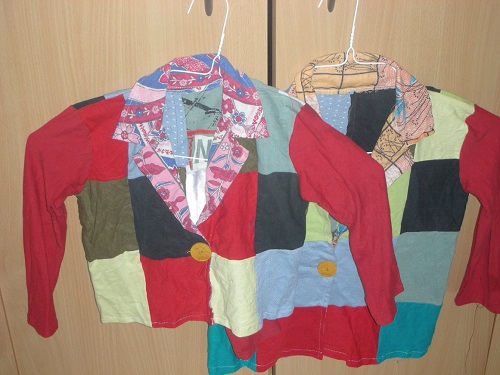
EYE: Is there a particular childhood moment that sticks with you to this day?
JILLIAN: We were living under the flight of stairs and just two feet away from us, people used to wash their clothes and their utensils. It’s like a public community area. My mom was a proper teacher, but she couldn’t find work so she used to work from early morning to late at night for these two ladies who lived upstairs.
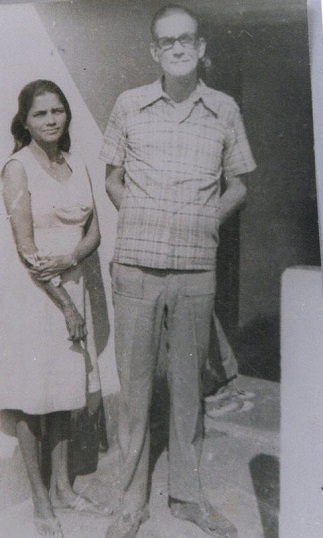
No matter how much she did and what she did to please them, every day my little sister and myself stood downstairs, and up the steps we could hear she was getting beaten by them. And that is something that has never left me, because she worked so hard.
She used to come home to where we lived under the flight of stairs with a little carrier, with two pieces of meat and one roti (a flatbread) for us to eat. And, we were like piranhas.
We used to just eat it up and used to say, “Mom, but what about you?” And she used to say, “My friends have fed me so much, I’m just full and I can’t eat anymore.” But actually she didn’t eat at all.
My father was a highly respected British gentleman, having served in the British army. Yet, because we couldn’t pay the rent because we were so poor, the landlord raised his hands to my father in total disrespect. My father had to take it because of poverty.
EYE: What effect does poverty have on children, specifically?
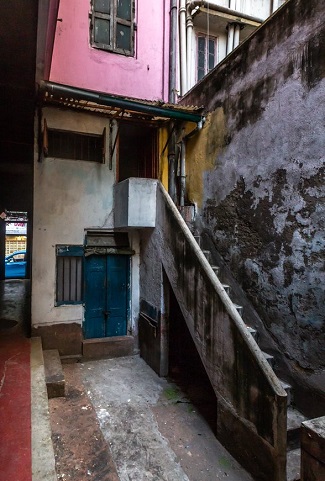
JILLIAN: I think people don’t fully understand the crippling effect that poverty can have on children. If the teacher explained something twice or thrice, we needed them to explain it ten or 13 times because of malnutrition, lack of food.
EYE: Did somebody in particular inspire you on your path out of poverty?
JILLIAN: We saw my parents cope from day to day after losing four children under the ages of six months to abject poverty and malnutrition. Just finding a school that would take us in so we could get a decent education was a major challenge. My parents definitely helped us through it.
It was also Mother Teresa. We used to go to this place called The Presbytery where the poor used to line up hours in advance for the Sisters of Charity to come and give you a packet of biscuits, a bag of powdered milk, and if you were lucky, you got a packet of clothes.
One of my treasured memories is the day that Mother Teresa touched my cheek. She would get up early in the morning, around 4:00 AM, go from truck to truck and place to place picking up the little babies from the bins, picking up the abandoned souls.
I saw what she and my mother went through. I have the greatest respect of all time for both women. Everything you see, whether it’s the poorest of the poor or her, leaves a lasting impact on you.
EYE: How did you become so successful in the banking industry?
JILLIAN: Thanks to my mother’s persistence in finding a school, we were able to get a decent education. After that it was up to us to find out own way. At Bank of America I got a job out of 250 applicants.
I wasn’t supposed to get it. The first thing I said to the CEO is you can give me two jobs! They were astonished at how hard I would work. If you want something badly enough, you work for it.
EYE: Why did you decide to return to the slums after all those years in banking?
JILLIAN: I went back because I truly believe that success is not just about making it through yourself. It is about going back and taking others with you and never, ever forgetting what has been done for you, who has done it and who has helped you to get to where you are. We wouldn’t have been here today if it wasn’t for them. So, I have gratitude for everything.
EYE: You also became a successful coach and speaker. How did that become part of your passion to help others?
JILLIAN: I just wanted to help everyone. I knew the first thing I had to do was to find my voice. And that was the greatest, most difficult decision I had to make. It took so much to fight that fear and to put myself on big stages.
At my first talk, a TEDx Talk in Ireland, I was rolling in sweat. I couldn’t breathe. I called my mentor and said, “I have to go home, can’t do it, whatever.” But he said, “You have to stay. Jillian, this is your opportunity to be understood by the world and not just to be heard. You can do this…Your story is one in a million…I am with you all the way.”
I did the talk, traveled back to London and it had gotten 50,000 views (now over 300,000 views). And I thought, Oh my gosh, I have something here, I can do it. Something has happened. And that’s when I knew I could use my voice to help to fight for people.
EYE: Is there a favorite quote or something else that keeps you centered, motivated and resilient?
JILLIAN: When my dad was leaving us at the door and there was no money to put in our hands every morning he used to bend down and kiss us and say, “I want you to know this is your start. This is not your end. Your end is up to you. This is just your start. So accept it. Love it. Make something of it. And one day it will become your end.”
I’m getting goose bumps telling you this because it’s so true. In my case, I have never forgotten where I’ve come from. I believe your end is up to you.
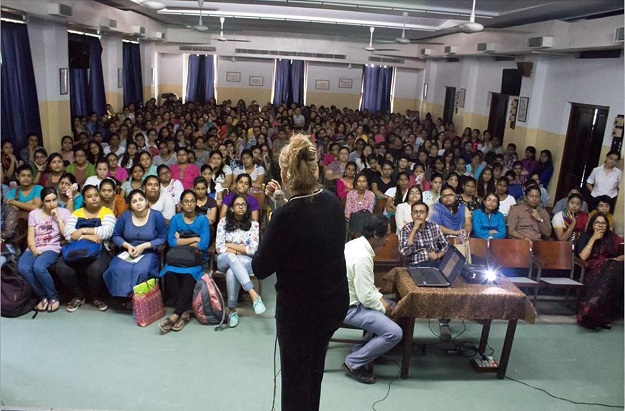
EYE: Of the numerous awards and recognition you have gotten, what did it mean to you to get the Mother Teresa International Award?
JILLIAN: Because it was the Mother Teresa Award, it was a very sacred day for me. I arrived by taxi and I was shocked to see the centuries-old church in Calcutta absolutely full of people from the seven faiths, because all seven faiths in India have to decide that you deserve this award.
After a procession to her tomb, where I also placed a wreath, the most special moment came in this very little room of hers. It was the same size as little rooms in the slum and it’s got an iron gate, the grills. No one is ever allowed in there. A little table has slippers and there are just three or four things there. When they opened that room for me to walk in, I couldn’t believe it.
I just burst out crying.This can’t be happening to me. This was very special, going back to when I saw her back in the slum and given the evidence of the work that I’ve actually seen her do and the legacy that she’s left behind.
EYE: What do you want people to take away from your story?
JILLIAN: I think if you have the will, anything is possible. President Obama once said that if you’re struggling to accomplish something, attach yourself to a bandwagon that is bigger than yourself.
So I attached myself to the people who were in desperate need, and I used to give three quarters of my salary there, establishing 6 successful non-profits that address poverty issues. I worked and I worked. Then that became a responsibility in a way I could not get the will to let them down.
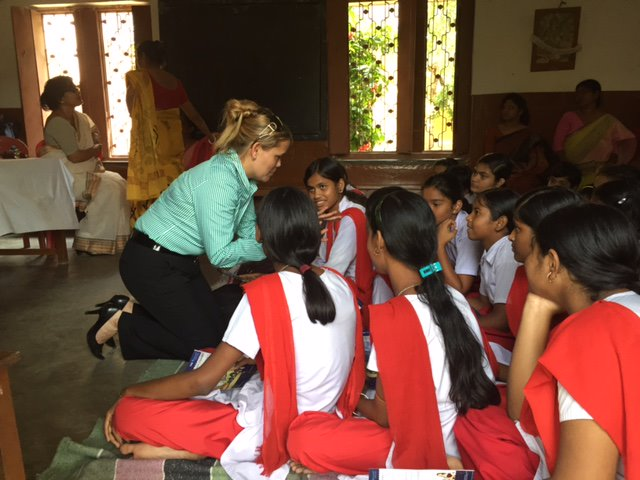
EYE: What do you want people to do?
JILLIAN: I would like the world to act. I have traveled extensively and would like to be hired to do a program on poverty for the BBC, ITV, ABC, CNN or any others in order to bring to life the seriousness of the matter. People think of poverty as hunger or starvation or homelessness.
It is far worse than that. Children are mentally disabled, adults are unable to cope, the elderly are giving up on their own lives and more. We can do something to reverse this and we don’t need just the government.
EYE: What more do you want to do?
JILLIAN: I have a lot to fight for, a lot to do. I am hoping that the United Nations listens to my stories. I want my voice to be heard, out into the world and for me to try to make changes because I’ve seen the good, the bad and the ugly. I’ve lived it all. I’ve seen diversity, I’ve seen poverty and I’ve seen it all.
I can help. I know how to do it. But sadly in our world you’ve got to get to a certain level before you can help. I am doing that now with my nonprofits that you can read about on my nonprofit site. I started it all on my own, no help from banks, and I still get up every single morning at 4:30 to zoom with them. I go to India at least twice a year.
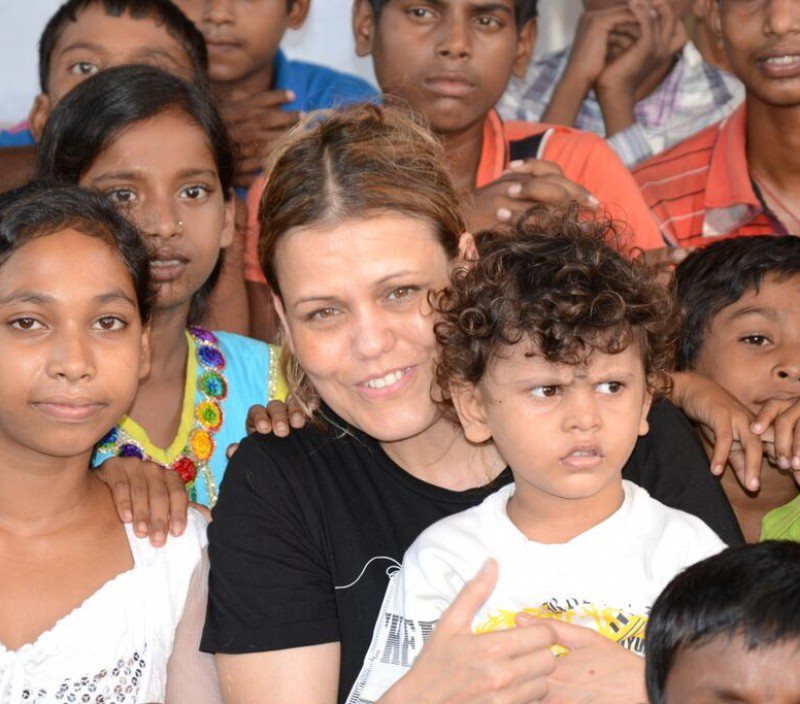
I’m hoping that I can spread the word that with attention, change can happen. I’m hoping that I can continue this as long as I can. Or I will die trying. That’s what I decided to do.
EYE: Thank you, Jillian for your time, insights and your action. TWE wishes you continued success as an important impactful voice for the poor. Looking forward to finding you at the UN! Also, if you go to Jillian’s site to buy the book, profits go to her nonprofits at Remedia Trust.
Photos Courtesy Jillian Haslam
Jillian’s Social Media:
Website: JillianHaslam.com
Facebook: JillianHaslam
Twitter: @jillianhaslam
Instagram: @jillian.haslam


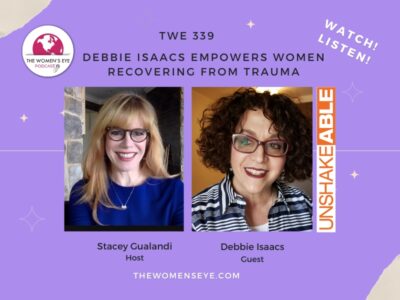
Leave a Reply